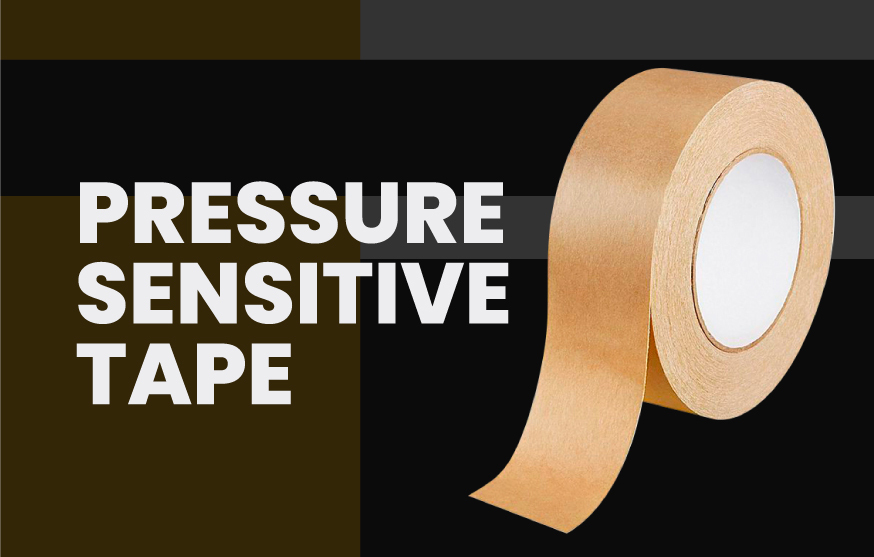The market for high-quality pressure sensitive adhesive tape is forecasted to expand significantly in the next decade, according to research analysts, and Tom Brown, Inc., is welcoming the news. Key industries sure to benefit from the growth are building and construction, and transportation–two areas TBI specializes in.
According to a report published by Global Market Insights, Inc., the global pressure sensitive tapes and labels market reached $90 billion last year and is expected to surpass $175 billion by 2032. In North America, a key hub for pressure-sensitive tapes and label production, the market is calculated to grow at a CAGR of six percent from 2023 to 2032.
Rick Alexander, TBI’s National Sales Manager who has more than 40 years of pressure-sensitive tape experience, said the amazing versatility of the tapes, which are used in products today once never thought possible, explains the anticipated surge. “Everyone is waking up to what these tapes can do,” he said. “They’ve fast become the desirable way of assembling and bonding all kinds of various things in industry. They’re easy to apply and can be put into various die cut parts and shaped in specific patterns at very tight tolerances.”
Some of the key benefits of Pressure Sensitive Tape (PST) include the following:
- User-friendly—adheres with only the light pressure of fingertips
- Strong load-bearing and bonding properties
- Durable and permanently tacky
- No need of heat or a solvent such as water for activation
- No need of mechanical fasteners for less potential damage to substrate surfaces
- Water resistant
- Available single-sided—allows bonding to a surface or joining of two adjacent or overlapping materials
- Available double-sided—allows joining of two items back-to-back
In the past, many things were assembled with mechanical fasteners, but adhesives and tapes offer benefits that general fasteners can’t provide. For example, screws, bolts, and rivets are not fire resistant, often have corrosion issues, and can end up weighing a lot. They also don’t have the fatigue resistance of tape, nor can they dampen vibrations as tapes can.
Tape is ideal for light-weighting applications, Alexander said, such as for parts in internal combustion engines or electric vehicles. “Car manufacturers often use less expensive materials such as TPC (thermoplastic co-polyester) and TPO (thermoplastic polyolefin) and other polymers that are hard to bond to, but the tape can do it.”
In the next five years, the company sees PST leading to strong single-digit growth—from five to nine percent–in their markets, particularly fenestration, both residential and commercial, and in trucks and utility trailers.
Brad Zechman, president and CEO of Adhesives Research, Inc., a supplier for TBI, said market conditions are aligning perfectly for Tom Brown. “There’s a lot of growth there around the markets themselves, and Tom Brown has their tentacles in those markets in deep and tenured ways. They’ve been in this business for many years. They know the dynamics, the players, and the supply chain, and they’ve got the relationships. They have all the intangibles going in the right direction.”
One path TBI is focusing on is automation. “I see a lot of automation coming,” said Brendan Brown, the company’s president. “That means our spooling capabilities are going to become more valuable. People are going to be looking for longer, continuous length rows of tape for automation.”
The need for speed is the primary consideration, Brown said, evident today in window manufacturing. Historically, tape was placed around a window frame manually, a time-consuming process. Now, larger window manufacturers are applying the glazing tape in line as the window frame is being extruded. “That’s a big plus for efficiency,” he said.
“The same process could work not just in the window world but on trucks and trailers, whenever they’re bending metal and have these big sheets of metal on the line. And I see more of that kind of technology coming, perhaps with robots applying it at a higher speed.”
This will allow companies, he said, to reduce people on the manufacturing floor. “And adhesive tapes lend good possibilities for that because they’re pressure sensitive. So all you need to apply them is a little bit of pressure.”
Brown wants to get the word out that the company can help other businesses with automation, whether it’s securing the right equipment or teaching them how TBI can spool and use tape applicators to boost productivity. “We can show them that maybe a liquid solution isn’t the best fit because it takes too much time, that they can improve their output or throughput with automation. We’ve got the solutions, and we can provide value.”
Adhesive tapes will open doors to new markets for TBI, Brown added. “We just signed a deal with a manufacturer rep that’s going to be focusing on aerospace and defense. We’ll be selling die cut shapes used in body armor and armored vehicles.”
The chief benefit of all TBI products, he said, is that as long as the company qualifies from a certification standpoint, they can sell into any market, including tier-two or tier-three suppliers for the medical industry.
“It’s really about having the expertise on the products and making sure we’re knowledgeable, that we have the right equipment and the workers who can service it. That’s how we’re preparing.”
